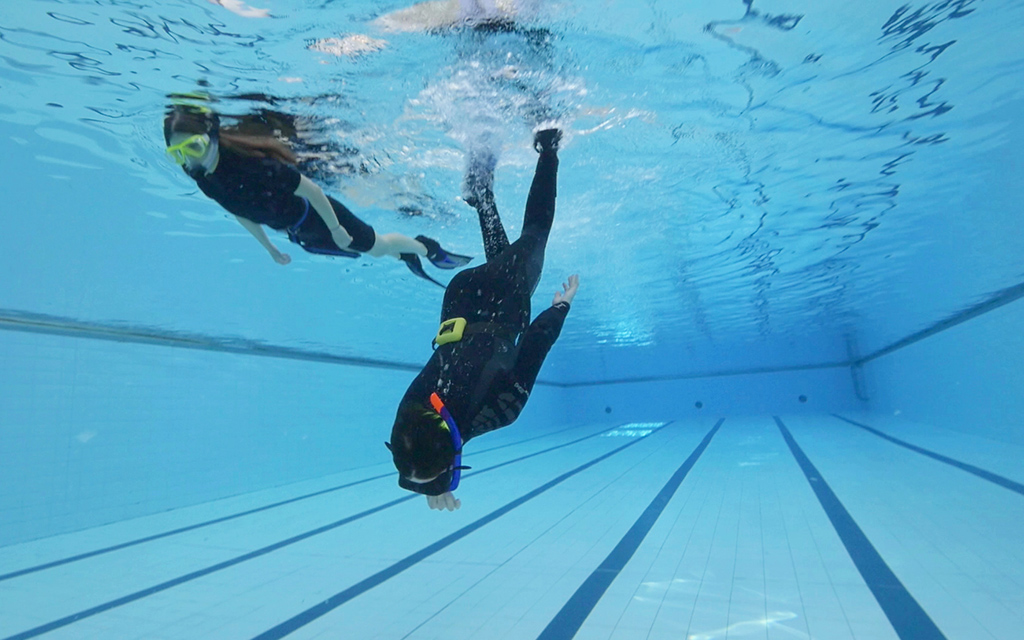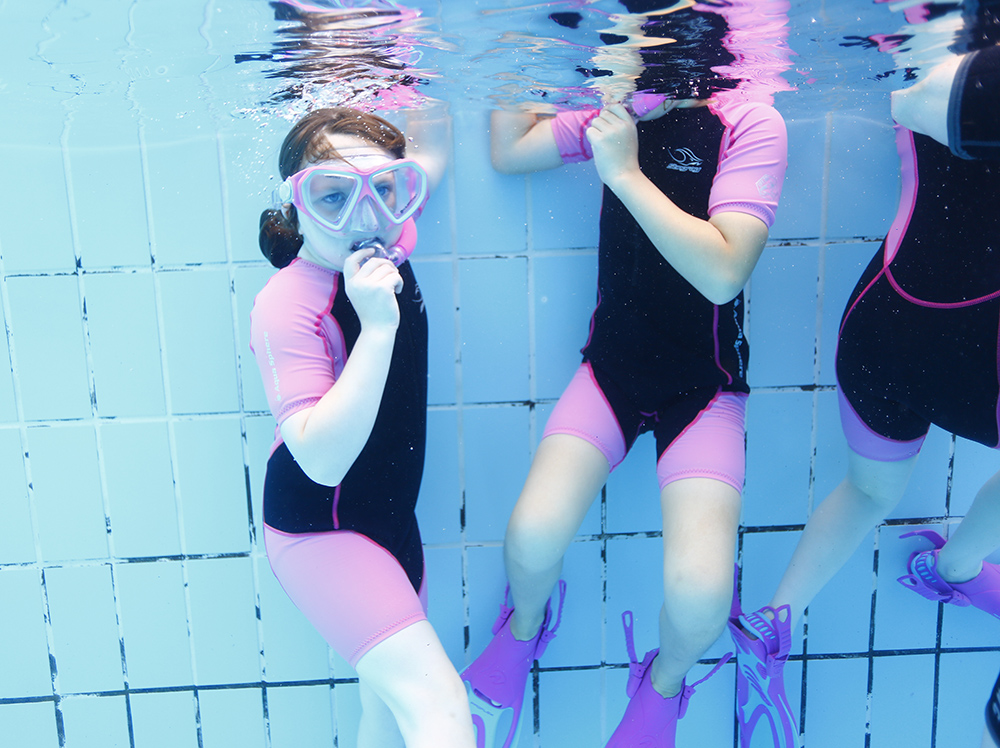
On holiday with access to an indoor pool, Andy Torbet and family go to work on their snorkelling skills.
I snorkel to see stuff. Not to compete, like in freediving events or Octopush leagues, but to encounter wildlife, shipwrecks, caves and underwater landscapes. So, it comes as a surprise to me to be extolling the virtues of snorkelling in a small swimming pool.
Even when I have run courses in snorkelling and freediving, they’ve been based in the ocean. If I want to inspire and enthuse people into our sport I want to show them more than four blank walls and a slightly sloping floor.
it’s a big ask to be perfecting your duck-dive when you have... marine life swimming past you (or hiding on the seabed)... a swimming pool has fewer distractions
I even tend to use our inland, cold-water sites for practice or to try out new kit. It has been some time since I donned a mask in a swimming pool. But last month I had the opportunity to stay at a small cottage in Wales with my family. And, shockingly when one considers the modest size, location and rent, it had its own pool.
My kids, thankfully, love the water. They’ve been swimming and snorkelling in the UK and abroad, but they’ve always been more interested in just getting in and seeing stuff than training or improving their snorkelling skills. Which is all fair enough.
After all, it’s a big ask to be perfecting your duck-dive when you have the complete menagerie of marine life swimming past you (or hiding on the seabed). But a swimming pool has fewer distractions and offers certain facilities more beneficial for training.
One of the big benefits of pool time is, well, time. The warmth of the water and the convenience of the pool meant we spent about six hours a day in the water. Just that amount of time to play and practise produces results. It’s a very controlled environment so we could stop and break down each skill into sections without the whole process being overwhelming or intimidating.
I had the kids practise a raft of skills, including:
- Mask removal and fitting on the surface
- Clearing the snorkel (which took longer to master than I’d anticipated)
- Good finning technique
- Finning with one fin (a bit of fun, but also in case of a lost fin at sea)
- Effective duck-diving and towing your buddy (for some reason the funniest activity of the trip for the boys)
Needless to say, it’s all excellent preparation for when they do their BSAC Dolphin Snorkeller course, which is aimed at younger children and structured over a series of seven progressive sessions.

It gave us a chance to learn small skills which will make them better snorkellers. Not only safer, but more skilful and adaptable, which will in turn help them to see and experience more.
I remember when I first joined Aberdeen BSAC Club aged 12 and would go along every Saturday to the pool sessions and snorkel. It must have been months before I was taken in the sea. But by then my confidence and ability to move in the water was such, even having practised in full wetsuit and ABLJ, that the extra effort of dealing with a cold, low-visibility and choppy North Sea was a manageable step up.
These days, I tend to train and test in environments at least as hard as those I would dive in, to ensure everything, especially me, is up to the task. But this trip reminded me that sometimes pool time allows us to experiment and try new skills in a way that allows us to take the time to work things out, rather than the ‘that didn’t work, we’ll come back tomorrow’ approach I am often forced to adopt.
And it proved especially productive with young children. Of course many of you out there, with your weekly club pool sessions, will know all this already. So if you have access to a pool night but aren’t taking advantage of your hour in the chlorine, maybe you’re missing a trick.
Article ‘Pool sharks’ by Andy Torbet first published in SCUBA magazine, Issue 146 June 2024. Images in this online version have been substituted from the original images in SCUBA magazine due to usage rights.




